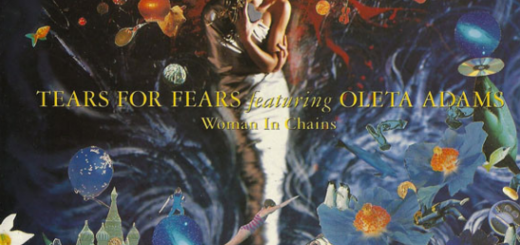Change by Tears for Fears Lyrics Meaning – The Timeless Cry for Transformation in the Modern World
Lyrics
I just had to laugh
The face you wore was cool
You were a photograph
When it’s all too late
It’s all too late
I did not have the time
I did not have the nerve
To ask you how you feel
Is this what you deserve
When it’s all too late
It’s all too late
Change
You can change
Change
You can change
And something on your mind
Became a point of view
I lost your honesty
You lost the life in you
When it’s all too late
It’s all too late
We walk and talk in time
I walk and talk in two
Where does the end of me
Become the start of you
When it’s all too late
It’s all too late
Change
You can change
Change
You can change
What has happened to
The friend that I once knew
Has he gone away
When it’s all too late
It’s all too late
Change
Change
You can change
Change
You can change
In the cacophony of synth-pop anthems that defined the 80s, Tears for Fears carved out a unique niche with their introspective lyrics and rich, layered sounds. One of their notable tracks ‘Change’ from the 1983 album ‘The Hurting’ may at first seem like a simple reflection on missed opportunities and the desire for personal evolution. However, a deeper analysis reveals much more.
Beyond its infectious beat, ‘Change’ is a resonant piece encompassing the complexity of human relationships, the pain of inertia, and the profound message that change, though daunting, is both possible and necessary. Here, we dissect this enigmatic hit and explore what makes ‘Change’ a timeless plea for reinvention.
Escaping Photographic Memories: A Picture of Past Regret
The opening verse of ‘Change’ serves as the prelude to a story marred by regret. The protagonist reminisces upon an encounter, trapped in the snapshot of what once was—a metaphor for frozen chances and moments when action could have been taken. The cool facade of a ‘photograph’ suggests a detachment, possibly a coping mechanism for what’s slipped by.
Interestingly, the juxtaposition of laughter and the coolness of the ‘face wore’ encapsulates a certain irony. It’s the mirth that arises not from joy but from the absurdity of recognizing one’s own passivity in the face of life’s defining moments. And with that recognition comes the painful understanding that time, once lost, translates to a landscape of what-ifs.
When It’s ‘All Too Late’: The Relentless March of Time
The repeated line ‘It’s all too late’ echoes like a haunting refrain throughout the song, emphasizing the permanence of missed opportunities. The brevity of the lyrics here is stark, cutting to the core emotion of regret. It speaks to the almost universal human experience of realizing that the optimal moment to act or express oneself has passed us by.
By stripping down the complexities of human experience into this short phrase, Tears for Fears manage to create a binding thread that relates to each listener’s personal narrative of delay and missed chances. Ultimately, it serves as a painful reminder that time waits for no one, and leaves a poignant sting every time it’s uttered in the song.
A Chorus that Inspires: The Anthem for Change
Amidst the somber reflections, the chorus ‘Change / You can change’ shines through as an empowering mantra. It injects a sense of hope and possibility into the otherwise regretful theme of the song. The simplicity and repetition of the word ‘change’ serve not just as a suggestion, but as a compelling directive.
The chorus imbues the track with a dichotomous nature—a call to action against the backdrop of passé inaction. It’s an invocation for transformation that resonates with the human spirit’s innate desire for growth and progress. Tears for Fears captures the essence of struggle against the inertia that binds us to our past mistakes.
The Duality of Self and the Blurring of Boundaries
Perhaps one of the song’s most profound explorations is the concept of self in relation to others. The line ‘We walk and talk in time / I walk and talk in two’ tantalizingly touches upon the way personal identities can fragment and evolve in the context of a relationship. It hints at the internal dissonance one might feel when part of oneself becomes intertwined with another.
The examination of where ‘the end of me’ meets ‘the start of you’ is a poetic contemplation of individuality within companionship. It subtly acknowledges the complexities and sacrifices that come with close human connections—how they can inherently change us, for better or worse.
The Hidden Meaning: Reflecting Society’s Resistance to Change
On a broader spectrum, ‘Change’ goes beyond the deeply personal and mirrors society’s own hesitations and challenges with change. In a world where progress can seem slow and societal norms rigid, the song becomes a microcosm for the collective human experience, where transformation is as crucial as it is hard to achieve.
The call for change and recognition of its necessity counterpoints the often immovable collective fear of the new and unknown. By recognizing this within the confines of a pop song, Tears for Fears transcends the genre to deliver a powerful message about embracing the inevitable shifts that shape our world and ourselves.








